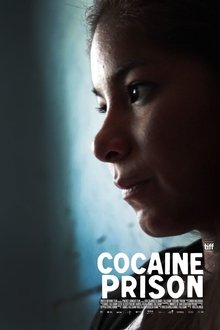A group of passionate young environmentalists spend 100 days in the jungles of Borneo in effort to save the rainforests and its endangered orangutans in this Australian documentary...
Related Movies
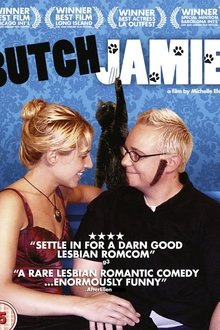
Butch Jamie (2008)
The film follows the story of Jamie, a struggling butch lesbian actress who gets cast as a man in a film. The main plot is a romantic comedy between Jamie's male alter-ego, "Male Jamie," and Jill, a heterosexual woman on set. The film's subplots include Jamie's bisexual roommate Lola and her cat actor Howard, Lola's abrasive butch German girlfriend Andi, and Jamie's gay Asian friend David.

Gloria's Call (2019)
In 1971, graduate student Gloria Orenstein received a call from Surrealist artist Leonora Carrington that sparked a lifelong journey into art, ecofeminism and shamanism. This short film uses art, animation and storytelling to celebrate this wild adventure. Now more than 40 years later, award-winning Dr. Gloria Feman Orenstein is a feminist art critic and pioneer scholar of women in Surrealism and ecofeminism in the arts. Her delightful tale brings alive an often unseen history of women in the arts.
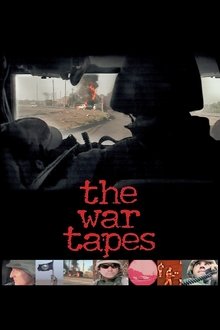
The War Tapes (2006)
Straight from the front lines in Iraq, THE WAR TAPES is the first war movie filmed by soldiers themselves. These soldiers bypassed Pentagon supervised media to share their experience like never before. Funnier, spicier, and more gut wrenching than news reports, this is Operation Iraqi Freedom as filmed by Sergeant Steve Pink, Sergeant Zack Bazzi and Specialist Mike Moriarty. Steve is a wisecracking carpenter who aspires to be a writer. Zack is a Lebanese-American university student who loves to travel and is fluent in Arabic. Mike is a father who seeks honor and redemption. Each leaves a woman behind - a girlfriend, a mother and a wife. Through their candid footage, these men open their hearts and take us on an unforgettable journey, capturing camaraderie and humor along with the brutal and terrifying experiences they face. These soldiers got the story that 2,700 embedded reporters never could.
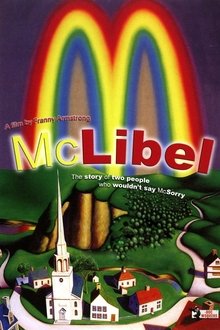
McLibel (2005)
McLibel is a documentary film directed by Franny Armstrong for Spanner Films about the McLibel case. The film was first completed, as a 52 minute television version, in 1997, after the conclusion of the original McLibel trial. It was then re-edited to 85 minute feature length in 2005, after the McLibel defendants took their case to the European Court of Human Rights.
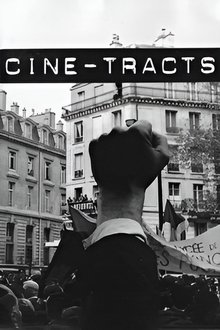
Cinétracts (1968)
A series of 43 documentary shorts, directed (without credit) by several famous French filmmakers and each running between two and four minutes. Each "tract" espouses a leftist political viewpoint through the filmed depiction of real-life events, including workers' strikes and the events of Paris in May '68.

Celebration at Big Sur (1971)
Star-studded show recorded at the Big Sur Folk Festival, Big Sur, California, September 13th and 14th, 1969. Joan Baez, Crosby, Stills, Nash & Young, Joni Mitchell, John Sebastian, and others. This film captures a remarkable moment in folk, rock, and pop history - the famous folk festival that brought traditional acts like Dorothy Morrison & The Combs Sisters and Carol Ann Cisneros together with the psychedelic rockers of the day who were most deeply rooted in the folk revival. Older songs like ‘Oh Happy Day,’ ‘Rise And Shine,’ ‘All God’s Children,’ and ‘Swing Down, Sweet Chariot’ meet Joni Mitchell’s ‘Woodstock,’ Joan Baez’s ‘Sweet Sir Galahad,’ ‘Bob Dylan’s ‘I Shall Be Released,’ CSNY’s ‘Down By The River,’ and many more of the now-classic songs of what was then called the ‘new rock.’ The scene is notably intimate and - aside from one fan’s dustup with Stephen Stills - mellow, with many rare, close-up moments with the stars.

Divan (2003)
Pearl Gluck travels to Hungary to retrieve a turn-of-the-century family heirloom: a couch upon which esteemed rabbis once slept. En route for the ancestral divan, Pearl encounters a colorful cast of characters who provide guidance and inspiration.

Burlesque Undressed (2010)
In this revealing documentary, burlesque star Immodesty Blaize examines the world of British burlesque and the resurgence in its popularity.

Kate and Anna McGarrigle (1981)
A short documentary about singers Kate and Anna McGarrigle made by animator Caroline Leaf.
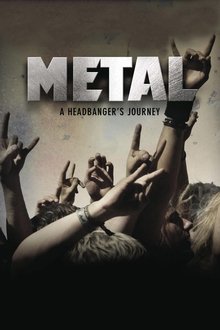
Metal: A Headbanger's Journey (2005)
The film discusses the traits and originators of some of metal's many subgenres, including the New Wave of British Heavy Metal, power metal, Nu metal, glam metal, thrash metal, black metal, and death metal. Dunn uses a family-tree-type flowchart to document some of the most popular metal subgenres. The film also explores various aspects of heavy metal culture.

Trick or Treaty? (2014)
Legendary Canadian documentarian Alanis Obomsawin digs into the tangled history of Treaty 9 — the infamous 1905 agreement wherein First Nations communities relinquished sovereignty over their traditional territories — to reveal the deceptions and distortions which the document has been subjected to by successive governments seeking to deprive Canada’s First Peoples of their lands.

The Last Season (2014)
In search of the lucrative matsutake mushroom, two former soldiers discover the means to gradually heal their wounds of war. Roger, a self-described 'fall-down drunk' and sniper in Vietnam, and Kouy, a Cambodian refugee who fought the Khmer Rouge, bonded in the bustling tent-city known as Mushroom Camp, which pops up each autumn in the Oregon woods. Their friendship became an adoptive family; according to a Cambodian custom, if you lose your family like Kouy, you must rebuilt it anew. Now, however, this new family could be lost. Roger's health is declining and trauma flashbacks rack his mind; Kouy gently aids his family before the snow falls and the hunting season ends, signaling his time to leave.

Beer Wars (2009)
In America, size matters. The bigger you are, the more power you have, especially in the business world. Anat Baron takes you on a no holds barred exploration of the U.S. beer industry that ultimately reveals the truth behind the label of your favorite beer. Told from an insider’s perspective, the film goes behind the scenes of the daily battles and all out wars that dominate the industry.
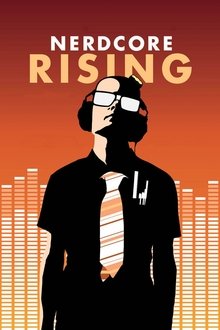
Nerdcore Rising (2008)
Nerdcore Rising is a documentary/concert film starring MC Frontalot and other nerdcore hip hop artists such as mc chris, Wheelie Cyberman of Optimus Rhyme and MC Lars, with contributors from such as "Weird Al" Yankovic, Prince Paul and Brian Posehn. It combines interviews about nerdcore and its origins with footage of MC Frontalot's 2006 Nerdcore Rising national tour.

Reason Over Passion (1969)
The film consists primarily of degraded footage of landscapes shot from vehicles moving across the country; meanwhile, 537 computer-generated permutations of the film’s title appear like subtitles—the letters are scrambled over and over again, undermining the meaning of Pierre Trudeau's infamous motto.
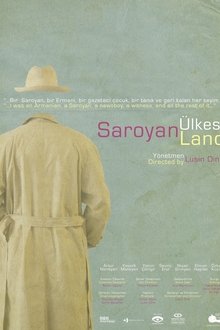
Saroyanland (2013)
Saroyanland is a docu-drama focusing on the journey of famous writer William Saroyan to the birthplace of his Armenian family Bitlis, in Turkey in 1964. While retaking the same road, the film aims to understand Saroyan's unique attitude to belonging, witnessing the self-discovery of a man who followed the traces of his Armenian ancestors.

Forbidden Lies (2007)
A dramatized documentary investigating accusations that "Forbidden Love" author Norma Khouri made up her biographical tale of a Muslim friend who was killed for dating a Christian.
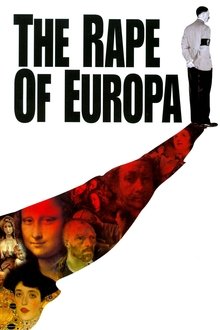
The Rape of Europa (2007)
World War II was not just the most destructive conflict in humanity, it was also the greatest theft in history: lives, families, communities, property, culture and heritage were all stolen. The story of Nazi Germany's plundering of Europe's great works of art during World War II and Allied efforts to minimize the damage.

